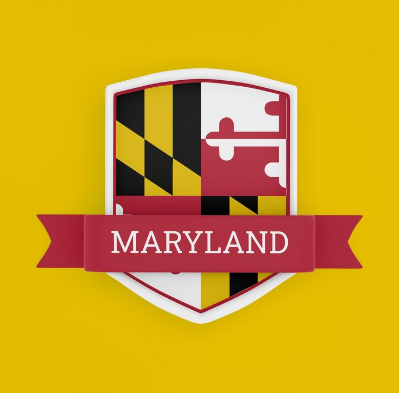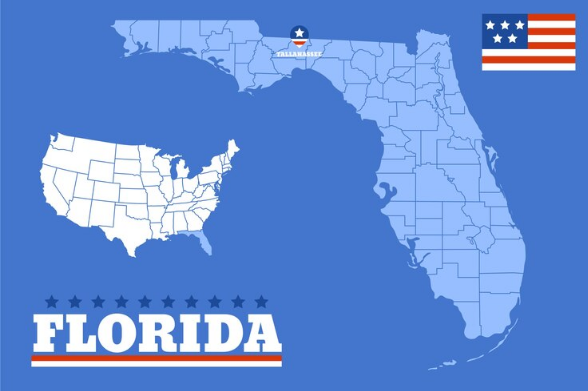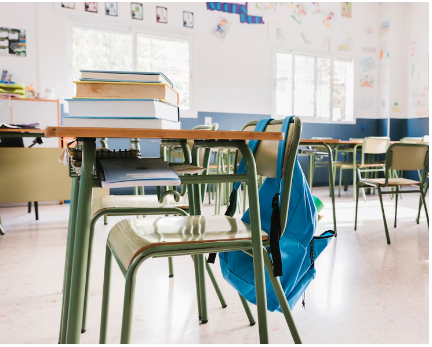Dyslexia Schools In Georgia [New Updates]

When evaluating dyslexia-friendly schools in Georgia, it's essential to apply a rigorous, multi-faceted approach to ensure that these institutions truly support students with dyslexia. Schools should be assessed based on their ability to offer specialized programs, trained staff, evidence-based teaching methods, and access to assistive technology.
In Georgia, schools that are considered dyslexia-friendly often excel in these areas, providing a supportive environment that fosters academic and personal growth for students with dyslexia.
By collaborating with experts, collecting data through surveys and observations, and validating findings with parents and educators, we can confidently recommend schools that genuinely meet the needs of dyslexic students.
Continuous monitoring and feedback ensure that these recommendations remain relevant and effective, offering Georgia families reliable guidance in choosing the right educational setting for their children.
This article will guide you through some of the top dyslexia-friendly schools in the area, providing you with the information you need to make an informed decision for your child's education.
The schools recommended have been carefully evaluated based on their specialized programs, the dedication of their staff, and their use of proven teaching methods.
We’ve spoken with parents, educators, and experts, and seen firsthand what works. The schools that made the list have shown a real commitment to helping students with dyslexia succeed, both academically and personally.
We want to make sure you have the information you need to choose a school where your child will feel supported, understood, and encouraged to reach their full potential.
What is the Percentage of Dyslexia Amongst Students In Georgia?
In Georgia, dyslexia affects an estimated 10% to 20% of the population. With approximately 1.8 million public school students in the state, this translates to between 180,000 and 360,000 students potentially experiencing dyslexia-related challenges.
Recognizing the significant impact of dyslexia on student learning, Georgia enacted Senate Bill 48 (SB 48) in 2019. This legislation mandates universal dyslexia screening for all kindergarten students, beginning in the 2024–2025 school year.
Additionally, it requires screening for certain students in grades 1 through 3 who exhibit characteristics of dyslexia. The bill also emphasizes the importance of early identification and intervention, aiming to provide support before students fall behind academically.
To support these initiatives, Georgia has implemented teacher training programs focused on structured literacy instruction and dyslexia awareness. Educators can obtain a Dyslexia Endorsement, equipping them with specialized skills to identify and assist students with dyslexia effectively.
Sources (ajc.com, gpb.org) (stateofdyslexia.org)
Legislation and Policies for Dyslexia In Georgia
Georgia has enacted comprehensive legislation and policies to support students with dyslexia, focusing on early identification, structured interventions, and educator training. Below is are key initiatives and laws:
Senate Bill 48 (SB 48) – Georgia’s Foundational Dyslexia Law
Passed in 2019, SB 48 mandates:
- Universal Screening: Starting in the 2024–2025 school year, all kindergarten students must be screened for characteristics of dyslexia. Students in grades 1–3 identified through the Response to Intervention (RTI) process are also to be screened. (gov.georgia.gov)
- Dyslexia Pilot Program: A three-year pilot (2020–2023) was conducted in select districts to evaluate early reading assistance programs for students at risk of dyslexia.
- Educator Training: The Georgia Department of Education (GaDOE) is required to provide ongoing professional development on dyslexia, including evidence-based interventions and structured multisensory approaches. (region6cc.uncg.edu)
Georgia Dyslexia Informational Handbook
The GaDOE has developed a Dyslexia Informational Handbook to guide educators and parents. This resource includes:(ga.dyslexiaida.org)
- Guidance on screening processes and tools.
- Information on evidence-based interventions.
- Strategies for monitoring student progress. (gov.georgia.gov)
Georgia Early Literacy Act (HB 538)
Enacted in 2023, this act emphasizes:
- Evidence-Based Instruction: Mandates the use of proven literacy instruction methods for K–3 students.
- Teacher Training: Requires retraining of K–3 teachers by August 2025 in structured literacy approaches.
- Literacy Coaches: Allocates funds to place literacy coaches in low-performing schools to support teachers in implementing effective reading instruction.
Sources (apnews.com) (stateofdyslexia.org)
Dyslexia Endorsement for Educators
Georgia offers a Dyslexia Endorsement for teachers, enabling them to specialize in identifying and supporting students with dyslexia through structured literacy instruction. (stateofdyslexia.org)
Data Collection and Monitoring
Local school systems are required to collect and report data annually on:
- The number of students screened and identified with characteristics of dyslexia.(gov.georgia.gov)
- The interventions provided and their outcomes.
What Type of School Is Best For a Dyslexic?
The ideal schools are the ones where students can learn without all that unnecessary stress weighing them down.
Plus, these schools are all about recognizing the unique strengths that come with dyslexia, like creativity and thinking big-picture.
If your kid has a special interest, whether it's engineering, chess, music, or anything else under the sun, these schools give them the time and space to chase their passions.
Forget about just hunting for "reading programs" right away because, believe it or not, dyslexic students often thrive when their reading lessons align with their interests.
Now, here's the deal: if your child isn't loving school and isn't coming home all pumped up about learning, it might be time to explore other options. And guess what? That's perfectly okay – even awesome.
You can take your child out of a place that doesn't fit, even if you don't have the next school lined up right away. It's a powerful message to your child that you're in their corner and ready to support them.
Let them take a breather, catch up on some sleep, and in the meantime, you can figure out the next steps together.
Looking for learning difference/dyslexia friendly schools? Here are some must ask questions to help you pick the right dyslexia friendly school for your child.
Before attending your meeting, do a bit of background research. The more you know about dyslexia, teacher education programs and intervention programs, the more targeted you can be with your questions and the better you will understand the answers.
Support Services for Students with Dyslexia in Georgia
1. Early Screening & Identification
- Universal Kindergarten–3 Screening
Under Georgia Code § 20‑2‑159.6, public schools are required to annually screen all students in K‑3 for dyslexia traits, including phonological awareness, decoding, rapid naming, etc., using approved tools. - Approved Screening Tools & Parental Notification
The State Board of Education has approved a list of specific, evidence-based “Qualified Dyslexia Screening Tools,” and state law requires schools to notify parents before screenings and provide follow-up resources if traits are detected.
Sources (law.justia.com, gadoe.org) (law.cornell.edu)
2. Intervention & Pilot Programs
- Pilot Program (2020–23)
Georgia launched a three-year pilot in selected districts (e.g., Decatur, DeKalb, Marietta) to implement structured literacy interventions—including teacher training and use of IDA-approved programs—evaluated annually. - Structured Interventions from 2024–25
Starting in the 2024–2025 school year, districts must not only screen but also monitor monthly and provide targeted instruction for students showing dyslexia traits.
Sources (law.cornell.edu) (gadoe.org)
3. Teacher Training & Dyslexia Endorsement
- Georgia Dyslexia Endorsement
Educators can pursue a specialized dyslexia endorsement approved by the Georgia PSC, which equips them with skills in structured literacy, screening, and interventions. - Grant‑funded Training Programs
Institutions like Georgia State University received state grants (~$107K) to help teachers afford dyslexia endorsement programs. - Scholarships via IDA‑Georgia
The International Dyslexia Association–Georgia chapter provides scholarships for educators to take courses in structured literacy and dyslexia intervention
Sources (ga.dyslexiaida.org) (legalclarity.org, news.gsu.edu) (gadoe.org)
Best Dyslexia schools In Georgia
1. Roberts Academy at Mercer University (Macon, GA)
- Program: Transitional school for grades 2–5 tailored exclusively for students with dyslexia.
- Approach: Uses the structured, multisensory Orton‑Gillingham method with small classes (max 12 students), daily diagnostics, handwriting practice, and vocabulary instruction.
- Notable: Georgia’s only specialized dyslexia school outside Metro Atlanta, connected to Mercer University’s resources and research opportunities .
Website: https://robertsacademy.org/
2. Swift School (Roswell, GA; K–8)
- Mission: Dedicated to learners with dyslexia and related language-based challenges.
- Instruction: Multi-sensory Orton‑Gillingham teaching in small, supportive groups; also offers free reading screenings for K–3.
- Community feedback: Parents praise the compassionate staff and confidence-boosting outcomes .
Website: https://www.theswiftschool.org/
3. The Schenck School (Atlanta, GA; K–6)
- Legacy: Founded in 1959 by dyslexia pioneer David Schenck.
- Method: Personalized, diagnostic and prescriptive version of Orton‑Gillingham across all subjects; includes speech, OT, tutoring, summer programs, adult learning, and teacher training .
- Recognition: Featured in Teen Vogue for transforming a struggling reader’s life.
Website: https://www.schenck.org/
4. GRACEPOINT School (Marietta, GA; Grades 1–8)
- Standout: One of only 19 Orton‑Gillingham-accredited programs nationwide .
- Curriculum: Immersive 75 min daily OG instruction, 5 to 1 student-teacher ratios, multi-sensory across all subjects.
- Growth: Opened in 2012, now serves over 130 students and hosts OG training events .
Website: https://www.gracepointschool.org/
Also read Best Autism Schools in Vermont (For Children and Adults)
5. Sage School (Lawrenceville, GA)
- Format: Faith-based, small class sizes, multisensory Orton‑Gillingham instruction in academics, STEAM, and arts .
- Goal: Builds self-advocacy; prepares students to transition back into mainstream schools.
Website: https://www.sageschool.net/
6. Wardlaw School (Atlanta Speech School) (Atlanta, GA; PK–5)
- Reputation: Part of a nationally acclaimed speech and literacy institution founded in 1938 .
- Focus: Builds deep reading abilities with structured literacy; offers OT, speech-language therapy, and immersive awareness events.
Website: https://www.atlantaspeechschool.org/wardlaw
7. The Howard School (Atlanta, GA; K–12)
- Specialization: Serves students with dyslexia, dysgraphia, dyscalculia, ADHD, and executive function challenges.
- Accreditation: Recognized by SACS and SAIS; modern 16-acre campus.
- Support: In-class speech-language pathologists and executive function coaching; offers OG training to educators .
Website: https://www.howardschool.org/
8. The Cottage School (Roswell, GA; K–12)
- Approach: Individualized programming for learning differences with small class ratios (~10:1); graduates achieve 100% post-secondary plans.
- Extras: Emphasizes social/emotional wellness; offers experiential learning and after-school enrichment .
Website: https://www.cottageschool.org/
9. Brookwood Christian Academy (Acworth, GA; Grades 1–12)
- Overview: Christian-based private K–12 school recognized for supporting language-based learners, including dyslexia .
- Accreditation: Listed in state dyslexia resource directories .
Website: (Listed under Georgia dyslexia school resources via Dyslexia Mom Life podcast)
10. The Walker School – New Avenues Dyslexia Program (Marietta, GA; Grades 1–5)
- Program: Small-group Orton‑Gillingham instruction for dyslexia within a strong academic environment .
- Position: Included among the top programs for learning differences in the region .
Website: https://www.walkerschool.org/



